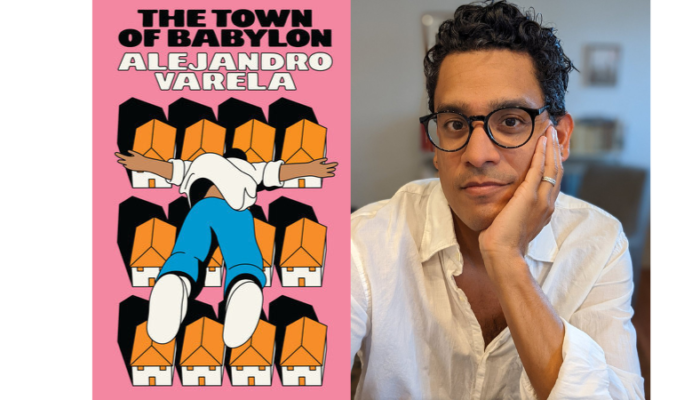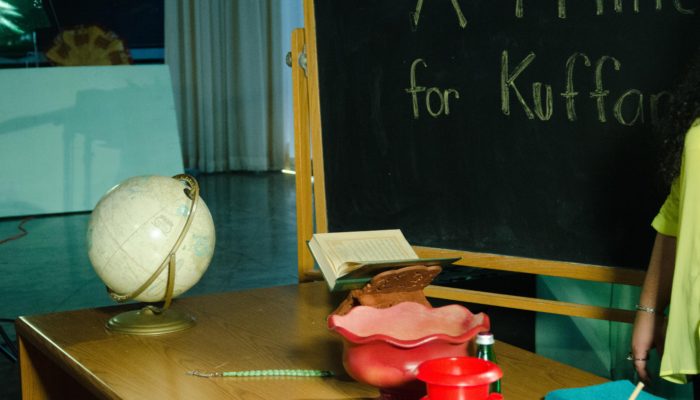by Veralyn Williams
Like many high school overachievers, I was such a planner. During my senior year at Dewitt Clinton High School most of my “plans” required a bit of cash flow. There was spirit-week, when every day had a dress code theme like “pajama day” or “twin day,” and I had to buy all new outfits for “the pictures.” Then there were the memorabilia expenses: our yearbook, senior jersey, class of ’04 poster-sized picture, etc. Of course, there was prom. I needed to pay my share of the limo, but more importantly, get a dress, shoes, my after-party outfit, and my hair and nails weren’t going to do themselves.
Doing all of this was life or death to me. Though now nine years later, I confess I have no idea where those pictures or that senior jersey is today.
I was brought to America from Sierra Leone at six months old. And being the realistic African child that I was, I knew the bank of Mom & Dad would not be entertaining these ventures, so I NEEDED a job. The issue, however, was that at 17 years old I still had no legal status in this country–so, no, McDonalds wasn’t an option.
That year, my undocumented status hit me like a ton of bricks. First when I attempted to get paid after working a week at an after school tutoring company, just to be told my social security number was invalid. [I’d given them the tax ID number my parents used to claim me on their taxes.] Then while filling out my FAFSA (Free Application for Federal Student Aid) form for college. What tripped me up me this time was their request for an “alien registration number,” the number all legal permanent residences in the U.S. have, and that’s when reality set in.
Though not knowing one’s legal status may sound unbelievable, as a 80’s baby growing up in NYC before 9/11, immigration was never discussed in my household. Sure, I knew I was not born here and my siblings were, but up until my senior year of high school, my younger sister’s and brother’s experiences were exactly the same. It took 9/11 for my dad to finally file an I-130 form for me (my ticket to obtaining legal status) because he saw the laws becoming stricter. But he never discussed any of this with me.
For my parents my only focus was doing well in school. And as long as I could go to school and have my food and shelter needs covered by them, I shouldn’t have been concerned with anything else.
However, my senior year–I repeat: pajama day, yearbook, prom–still needed to be funded!
So, through what I now would describe as “working my network”, I found The Record Shack, a mom-and-pop music and electronics store in Harlem. The store was a rectangular space jammed between an accessories store and a discount clothing store. Music blasted from outside speakers. There were posters, cds, and electronics displayed in the windows. Walking in you found a line of glass display cases to your left and right. And in the back were stacks of the most random collection of electronics I’ve ever seen: boombox radios, clocks, phones, coffee makers… you name it.
The job was to be an “everything-girl” for $5 an hour, and I gratefully jumped at it! (Sorry, Sheryl Sandberg, given the nature of my situation–not having a social security number and all–it never occurred to me to “Lean In” and negotiate.) I worked the weekends Friday thru Sunday for about 15 hours total. Because I was involved in a ton of extra curricular activities that already kept me out of my home after school and on weekends, a few months passed before I even told my parents.
My boss was a tall, solid South African man with an accent and a beard, who opened shop in Harlem before I was even born. His name was Shange, and he was a very proud, traditional, hard working, very serious and often grumpy man. After meeting him for the first time, I remember thinking, “Wow. He didn’t smile once.” But over the 3 years I worked there, we eventually shared a few laughs. Though keeping it all-the-way-real, those moments were few and far between.
Shange knew a lot about everything. And even though he was somebody’s grandpa, he was still able to intimidate any “punk” that walked through the door. I always felt safe at The Record Shack if he was there. And everyone in the community respected him for standing strong against the changing tides of the neighborhood. His shop was the last black-owned business still on 125th Street.
For me, the best part of my job was that anybody was likely to walk through the door! From celebrities (Lauryn Hill was my highlight) to Black Panthers to our after-church regulars, to trailblazing Journalist Gil Noble, and often pleasant, but sometimes mentally ill members of Harlem.
Everyone had a story to tell. On a slow day selling music, videos, or electronics, I’d make myself busy alphabetizing the different CDs, and (yes) cassettes. Each glass case contained a different genre: There was Gospel, Pop/R&B, Rap, Caribbean/African, and of course our most popular section, “Old School” music (aka: all things Motown). I’d mechanically organize and eavesdrop on conversations about gentrification in Harlem or “the state of black America” or “the Trojan Horse in Chicago” (who we now know as President Barack Obama. By the time he was running in 2008, Shange’s opinion of him had changed.) Every day was a lesson of sorts, and I took it all in.
Now for the more difficult aspects of this job…
My first year at the shop, I was called “girl” and Shange hardly ever made eye contact with me, except when he was yelling at me about something. Once I was reprimanded for starting to leave when my shift was over. Even though I’d waited the (polite) 5 minutes before running to the back for my coat. He’d forgotten when I was supposed to leave, but instead of admitting he had made a mistake, he proceeded to give me a lecture about “taking it easy” and “giving a little.” Everything in me at the time wanted to remind him he was paying me $5 an hour, and ask if he could “give a little” too, but I needed the job, so instead I remained the good African child that I knew how to be. There were many moments like this.
Once I graduated from high school, I took on more hours and responsibilities, and soon something happened–I realized there were things I knew about the business that Shange didn’t. He asked me for advice on what to order, he referred customers to me who only knew that the song started with “What’s my mother fu**king name…” and I’d quickly usher them to the R&B case to grab J. Lo’s new album. I was the one to suggest we start a Top 50 Albums list, which I typed at home on my own time.
Before I knew it, I became the one on the phone with Michael, our sales guy from AMC Records, placing our weekly orders. So as much as I needed this job, a little over a year into it, it was clear he also needed me. (Or so I’d decided in my head.)
The first 2-way argument Shange and I had was over a Boyz II Men album. The customer, I thought, was describing the song, “End of the Road,” but after he bought and listened to it, we discovered I was wrong. He was really looking for the song, “Yesterday.” In front of the customer, my boss said in his cold voice, “Girl. You have to pay to replace that.”
Now, granted I had made the mistake on that sale, but I felt like I’d made many a sale up to that point and got it right. I refused to live in a world where I incurred all the risk when playing “name that tune.” I was also angry and embarrassed by being reduced, once again, to “Girl.” I made it clear that if I had to buy that CD, I didn’t want to EVER be asked to identify another song again! (Not in these words of course. Near tears from my shocked feeling, my response was less direct. But, that was my gist.)
What happened you ask? I paid for the CD, and in my need to continue to be good at what I did– I still “named that tune” for customers that would ask. But I was less cocky with it.
Working at The Record Shack not only allowed me to finance senior year, but my 3 years there (I quit when I received a green card in 2006) gave me tough skin and humbled me. Looking back now, I guess I could have quit at any time (wasn’t like I had a family to feed or anything). But I truly never saw quitting as an option. There were college textbooks to buy, parties, my boyfriend (at the time)’s birthday… and honestly I just enjoyed being independent in that way.
At the end of the day, my experiences at The Record Shack–feeling trapped in a job I didn’t always love made me decide to go after my dreams. When I was convinced I wanted to be a writer, I joined programs like MCC Youth Theater Company and Girls Write Now. I shifted my focus to journalism after joining WNYC’s Radio Rookies and discovering radio. Soon I had mentors that inspired me and added media internships to my schedule.
The value I placed on doing work I found enjoyable transcended money. And in a lot of ways being undocumented during these formative years is what prepared me for a lifetime of hustling to make ends meet in the world of media today.
When I finally had the ability to work elsewhere, I quickly started applying. I soon got hired at Barnes & Noble. I left The Record Shack making $5.75 (I got my one-time raise of $0.75 after two years), and started making $8 an hour at a company that went against everything the family-owned, community-celebrated, Record Shack stood for… But somehow, (maybe on the day I had enough money to open a bank account), I got over it.
Veralyn Williams has a B.A. in Media Studies from Hunter College, and has been tackling questions about identity, social norms, and community since she picked up her first microphone 10 years ago. She is currently works to build power in Central Brooklyn as Communications Organizer at Brooklyn Movement Center (BMC), a membership-led, direct-action, community organizing group. Before joining BMC, Veralyn spent 6 years as a Multimedia Freelance Journalist, producing and reporting award-winning stories for WNYC’s Radio Rookies. Her work has also been featured on NPR, Bedsider.org, WBAI, BronxNet Television, and on her personal blog, VeralynMedia.com. Veralyn is a Board Member and Co-Founder of Telem Center for the African Child, a nonprofit providing cultural, educational and recreational programs for children of African descent to explore and celebrate their heritage. Through all of her endeavors she aims to give a voice to perspectives that are often forgotten in the media.



